The Home Inspection Process Demystified: Everything You Need to Know
03/04/24
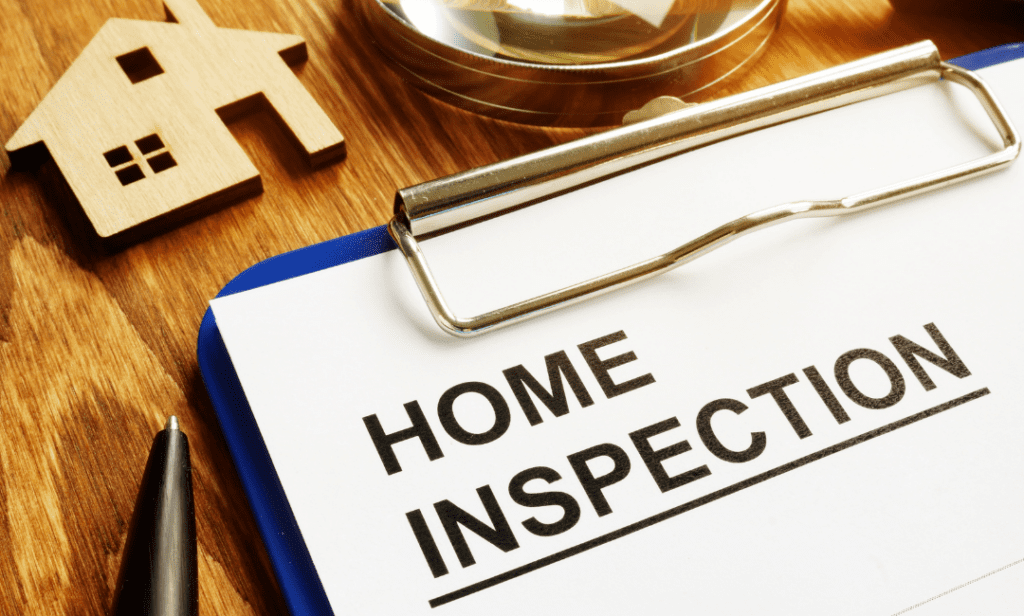
Are you about to buy a new home in the vibrant neighbourhoods of Toronto’s west end, like High Park or Bloor West Village? Before you sign on the dotted line, it’s important to understand the home inspection process. In this article, we will demystify everything you need to know about home inspections, ensuring that you have a clear understanding of the process and its importance.
A home inspection is a thorough examination of a property’s condition, from the foundation to the roof and everything in between. It is conducted by a certified home inspector who will identify any potential issues or defects that may affect the value or safety of the property.
Understanding the home inspection process can save you from making a costly mistake. It allows you to negotiate repairs or ask for a reduced purchase price based on the findings. Additionally, it ensures that you are aware of any hidden problems that could turn your dream home into a nightmare.
So, whether you are a first-time home-buyer or a seasoned real estate investor, keep reading to discover all the essential information about the home inspection process. With the Smith Proulx Team’s local know-how, you can navigate the journey of buying a home with confidence, making informed decisions that are right for you and your family. Armed with this knowledge, you can confidently navigate the journey of buying a home and make informed decisions every step of the way.
- Why should you get a home inspection?
- What is the home inspection process?
- Finding a reputable home inspector
- Preparing for a home inspection
- What is included in a home inspection report?
- Common issues found during a home inspection
- Negotiating repairs after a home inspection
- DIY home inspections vs professional inspections
- How much does a home inspection cost?
- The importance of a thorough home inspection
Why should you get a home inspection?
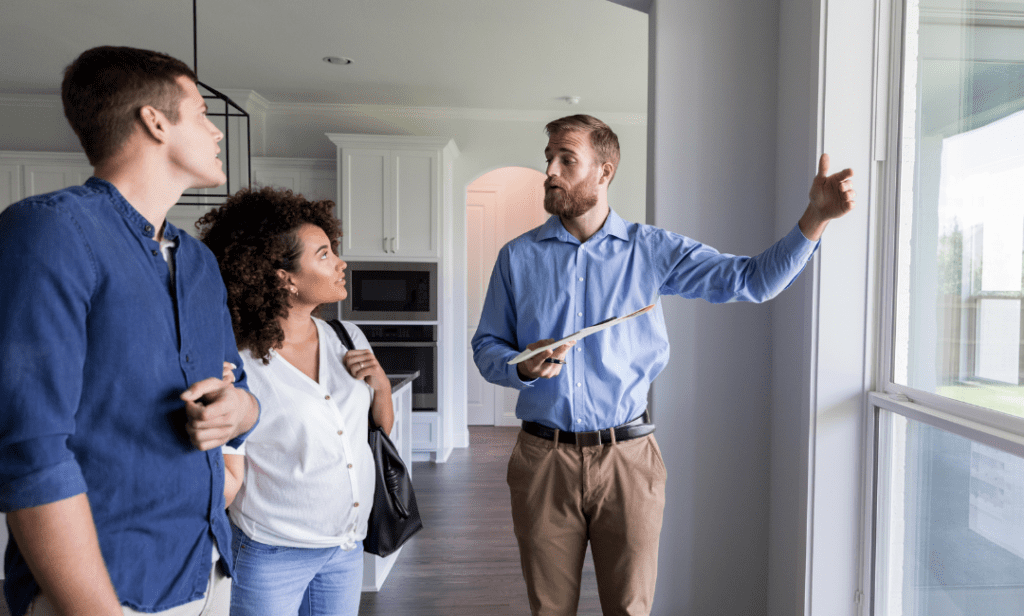
A home inspection is an essential step in the home-buying process. It provides a comprehensive assessment of the property’s condition and helps identify any potential issues or defects that may not be visible to the untrained eye. Here are a few reasons why a home inspection is important:
1. Financial protection: A home is one of the largest investments you will make in your lifetime. A thorough inspection can uncover hidden problems that may require costly repairs. By identifying these issues before closing the deal, you can negotiate repairs or ask for a reduced purchase price, potentially saving you thousands of dollars.
2. Safety concerns: A home inspection not only focuses on the structural integrity of the property but also identifies potential safety hazards. This includes issues such as faulty wiring, mould growth, or the presence of radon gas. Knowing about these hazards allows you to address them before moving in, ensuring a safe living environment for you and your family.
3. Peace of mind: Buying a home is a significant decision, and a home inspection provides peace of mind. Knowing that a professional has thoroughly examined the property and given it a seal of approval can alleviate any doubts or concerns you may have about the condition of the home.
What is the home inspection process?

The home inspection process typically involves several key steps to ensure a comprehensive examination of the property. Here’s a breakdown of what you can expect during a home inspection:
1. Scheduling the inspection: Once you’ve made an offer on a home, it’s time to schedule a home inspection. It’s crucial to find a reputable home inspector with the necessary certifications and experience. You can ask your real estate agent for recommendations or search online for qualified professionals in your area.
2. The inspection day: On the day of the inspection, the home inspector will arrive at the property and begin assessing its condition. They will examine both the interior and exterior of the home, including the foundation, roof, plumbing, electrical systems, HVAC, and more. The inspection can take several hours, depending on the size and complexity of the property.
3. Accompanying the inspector: It’s highly recommended that you accompany the home inspector during the inspection. This allows you to ask questions, gain a better understanding of any issues found, and learn about the maintenance needs of the property. It’s an opportunity to get firsthand knowledge about the condition of the home.
4. The inspection report: After the inspection, the home inspector will provide a detailed report outlining their findings. This report will typically include photographs, descriptions of any issues or defects, and recommendations for repairs or further evaluations by specialists if necessary. The report serves as a comprehensive document that you can refer to when making decisions about the property.
5. Taking action: Once you receive the inspection report, it’s time to review its findings. If significant issues are uncovered, you may want to consider renegotiating the terms of the sale, requesting repairs, or asking for a reduction in the purchase price. It’s important to discuss your options with your real estate agent and determine the best course of action.
Finding a reputable home inspector

Finding a reputable home inspector is crucial to ensure a thorough and accurate assessment of the property. Here are a few tips to help you find the right professional for your home inspection:
1. Check certifications and qualifications: Look for home inspectors who are certified by reputable organizations, such as the Ontario Association of Home Inspectors (OAHI), Canadian Association of Home and Property Inspectors (CAHPI), and National Home Inspector Certification Council (NHICC). These certifications indicate that the inspector has undergone rigorous training and adheres to industry standards.
2. Ask for referrals: Seek recommendations from friends, family, or your real estate agent who have recently purchased a home. Personal referrals can provide valuable insights into the quality and professionalism of a home inspector.
3. Research online reviews: Before hiring a home inspector, take the time to read online reviews and testimonials from previous clients. This can give you an idea of their reputation and the quality of their work.
4. Interview potential inspectors: Schedule a phone call or in-person meeting with potential home inspectors to discuss their experience, qualifications, and approach to inspections. Ask about their knowledge of local building codes and regulations to ensure they are familiar with the specific requirements in your area.
Remember, the home inspector you choose will play a crucial role in your home-buying process, so take the time to find someone who is trustworthy, experienced, and knowledgeable.
Preparing for a home inspection
As a home seller, preparing for a home inspection can help ensure a smooth and efficient process. Here are some steps you can take to prepare your home for inspection:
1. Clean and declutter: Clear any clutter and ensure that all areas of the home are accessible to the inspector. This includes moving furniture, boxes, and personal belongings that may obstruct the inspector’s access to important areas.
2. Provide documentation: Gather any documentation related to the property, such as past inspection reports, warranties, or maintenance records. This information can be helpful for the inspector to understand the history of the home and identify any recurring issues.
3. Take note of concerns: Before the inspection, make a list of any specific concerns or areas you would like the inspector to pay extra attention to. This could include signs of water damage, cracks in the walls, or any recent renovations or repairs.
4. Utilities and systems: Ensure that all utilities, including electricity, water, and gas, are turned on and accessible. This allows the inspector to test systems and appliances, such as heating, cooling, and plumbing.
By preparing your home in advance, you can help the home inspector perform a thorough examination and potentially prevent any delays or issues during the inspection.
What is included in a home inspection report?
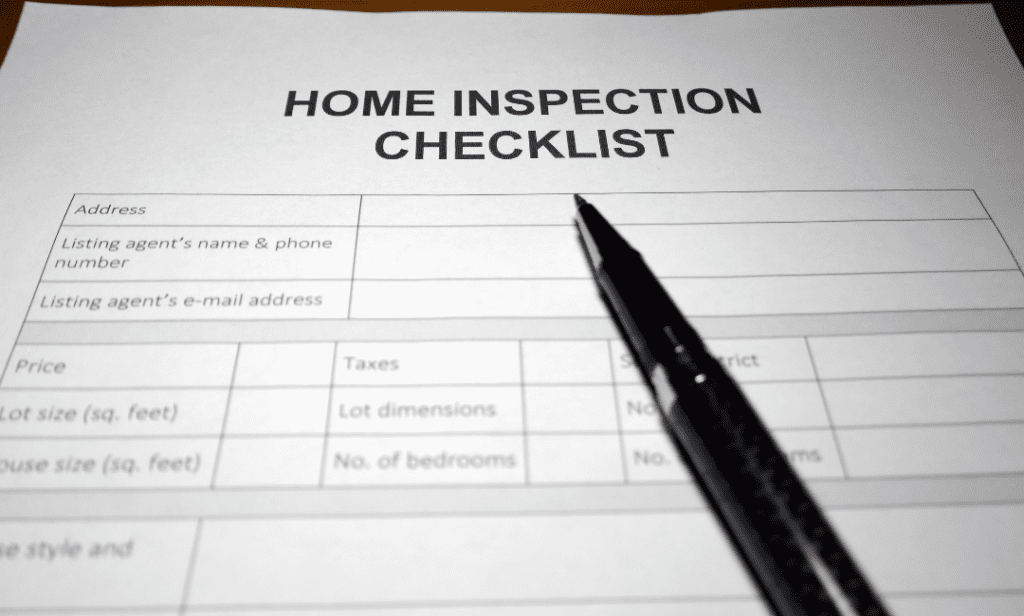
A home inspection report provides a detailed account of the inspector’s findings and recommendations. Here is what you can expect to find in a typical home inspection report:
1. Summary: The report usually begins with a summary that highlights the overall condition of the property, including any significant issues or safety concerns.
2. Detailed descriptions: The report will provide detailed descriptions of each area of the home that was inspected, including the exterior, interior, roofing, electrical systems, plumbing, HVAC, and more. This section will outline any issues or defects found, along with supporting photographs or diagrams.
3. Recommendations: The inspector may include recommendations for repairs or further evaluations by specialists if necessary. This can help you prioritize repairs and understand the potential costs involved.
4. Maintenance tips: Some reports may include maintenance tips or suggestions to help you keep the property in good condition and prevent future issues.
5. Appendix: The report may include an appendix with additional information, such as building codes, regulations, or resources for further research.
It’s important to carefully review the inspection report and seek clarification from the inspector if needed. The report will serve as a valuable reference as you make decisions about the property.
Common issues found during a home inspection
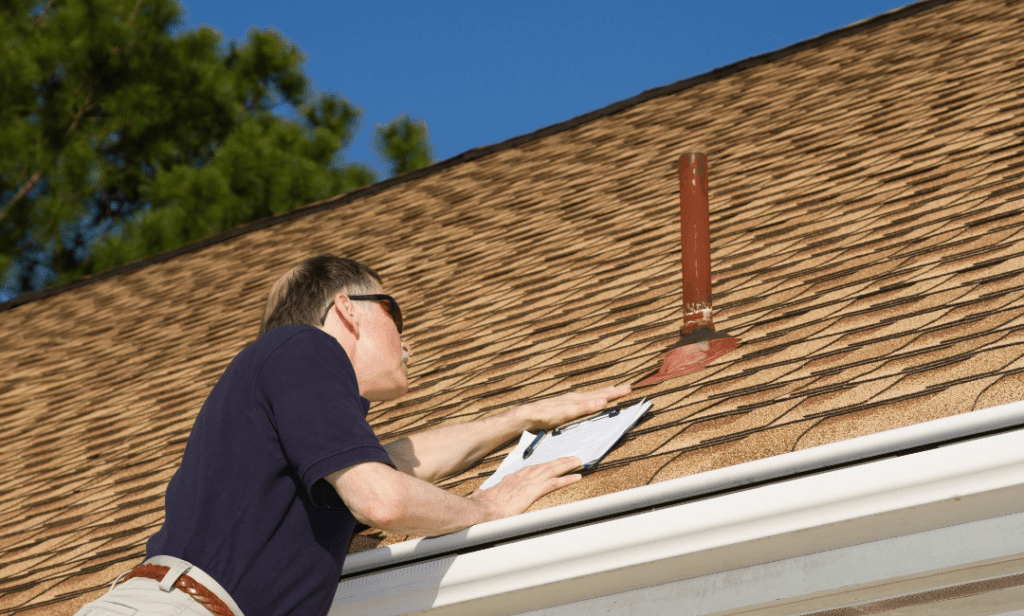
During a home inspection, the inspector may uncover various issues or defects. While every property is unique, here are some common issues that are often found during a home inspection:
1. Roofing problems: Roof leaks, damaged shingles, or inadequate ventilation are common issues that may be discovered during a home inspection. These issues can lead to water damage, mould growth, and costly repairs if not addressed promptly.
2. Electrical issues: Outdated electrical systems, faulty wiring, or inadequate grounding are safety concerns that may be identified during an inspection. These issues can pose a fire hazard and may require immediate attention.
3. Plumbing problems: Leaking pipes, clogged drains, or inadequate water pressure are common plumbing issues that can affect the functionality and comfort of a home. Addressing these issues can prevent water damage and ensure the proper functioning of the plumbing system.
4. Foundation issues: Cracks in the foundation, uneven settling, or moisture problems can indicate potential structural issues. These issues can compromise the stability and safety of the home and may require professional evaluation and repairs.
5. Mould and moisture: The presence of mould, mildew, or excessive moisture can indicate underlying issues such as leaks, poor ventilation, or plumbing problems. Mold can pose health risks and may require remediation to ensure a safe living environment.
It’s important to remember that not all issues found during a home inspection are deal-breakers. Some issues may be minor and easily fixable, while others may require more extensive repairs. Discuss the findings with your real estate agent and consider consulting specialists or contractors for further evaluation, if needed.
Negotiating repairs after a home inspection
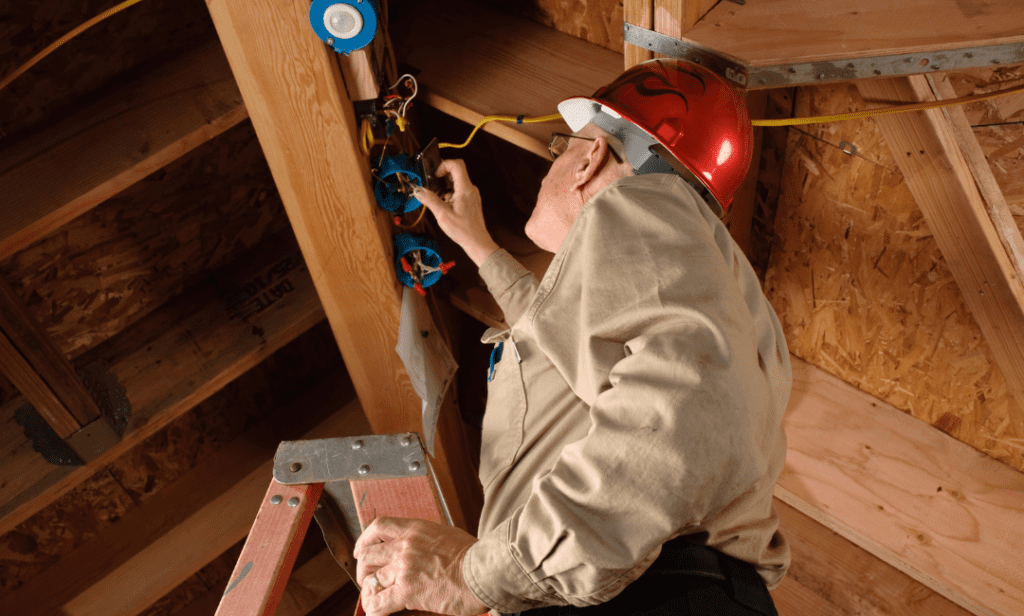
After receiving the home inspection report, you may have the opportunity to negotiate repairs with the seller. Here are some tips for effectively negotiating repairs:
1. Prioritize the issues: Identify the most critical issues that need immediate attention, such as safety concerns or structural problems. Focus on addressing these issues first during negotiations.
2. Estimate repair costs: Obtain estimates from qualified professionals for the repairs needed. This will provide you with a realistic idea of the potential costs involved and help you negotiate a fair resolution with the seller.
3. Be reasonable: Understand that not all repairs may be feasible or cost-effective for the seller. Be willing to compromise and focus on the most essential repairs that are necessary to ensure the property’s safety and functionality.
4. Consider alternative solutions: If the seller is unwilling to make repairs, you may negotiate for a reduction in the purchase price or ask for a credit at closing to cover the cost of repairs.
5. Consult your real estate agent: Your real estate agent can provide guidance and support during the negotiation process. They have experience in navigating these situations and can help you find a solution that works for both parties.
Remember, the goal of negotiation is to find a resolution that satisfies both the buyer and the seller. Open communication and a willingness to find common ground can lead to a successful outcome.
DIY home inspections vs professional inspections
While DIY home inspections can provide some initial insights into a property’s condition, they cannot replace the expertise of a professional home inspector. Here are a few reasons why professional inspections are recommended:
1. Expertise and experience: Professional home inspectors undergo specialized training and have extensive knowledge of building codes, regulations, and construction practices. They are trained to identify potential issues or defects that may go unnoticed by a DIY inspector.
2. Objectivity: A professional home inspector provides an unbiased assessment of the property. They have no emotional attachment to the home and can provide an objective evaluation of its condition.
3. Specialized tools and equipment: Professional home inspectors use specialized tools and equipment to assess various systems and components of a home. This includes thermal imaging cameras, moisture meters, and other tools that can detect hidden issues.
4. Comprehensive reports: Professional home inspectors provide detailed, written reports that outline their findings and recommendations. These reports serve as an official document and can be used for negotiations, insurance purposes, or future reference.
While DIY home inspections can be a helpful initial step in evaluating a property, they should not replace a professional inspection. A professional inspection provides a thorough and accurate assessment of the property’s condition, ensuring that you have a complete understanding of its strengths and potential issues.
How much does a home inspection cost?
The cost of a home inspection can vary depending on various factors, including the size and location of the property, as well as the scope of the inspection. On average, a home inspection can cost between $300 and $500. However, it’s important to remember that the cost of the inspection is a small investment compared to the potential savings and peace of mind it provides.
While the cost may seem significant, it’s crucial not to compromise on the quality of the inspection for the sake of a lower price. Hiring a reputable and experienced home inspector ensures a thorough evaluation of the property and can potentially save you from costly surprises down the line.
The importance of a thorough home inspection
The importance of a thorough home inspection can’t be overstated in the home-buying journey, especially in vibrant Toronto neighbourhoods like High Park or Bloor West Village. It’s much more than a simple checklist; it’s a vital step in protecting your investment and ensuring your peace of mind. Imagine discovering the hidden secrets of a charming Roncesvalles century home or understanding the intricate details of a new, modern condo in The Kingsway. This is where a comprehensive home inspection comes into play.
Our team, deeply familiar with the unique aspects of Toronto’s west-end properties, understands the importance of this process. It offers a revealing look into the health and safety of your potential home, highlighting any concerns that might lead to expensive repairs or even hazardous conditions. With the help of a skilled home inspector, you, as a prospective homeowner, will gain critical insights. This knowledge empowers you to make informed decisions, whether you’re eyeing a family residence in Bloor West Village or a trendy loft in the Junction Triangle.
This step is not just about protecting your financial investment; it’s about laying the groundwork for a happy, secure home life in your chosen Toronto neighbourhood. The Smith Proulx Team values the lasting satisfaction and safety of your home, and we see a detailed home inspection as a cornerstone of this journey. It’s about clarity, confidence, and building a solid foundation for your home ownership experience in Toronto’s diverse and dynamic communities.
Looking for more like this?
Get more buyer insights and tips delivered to your email inbox, absolutely free!



